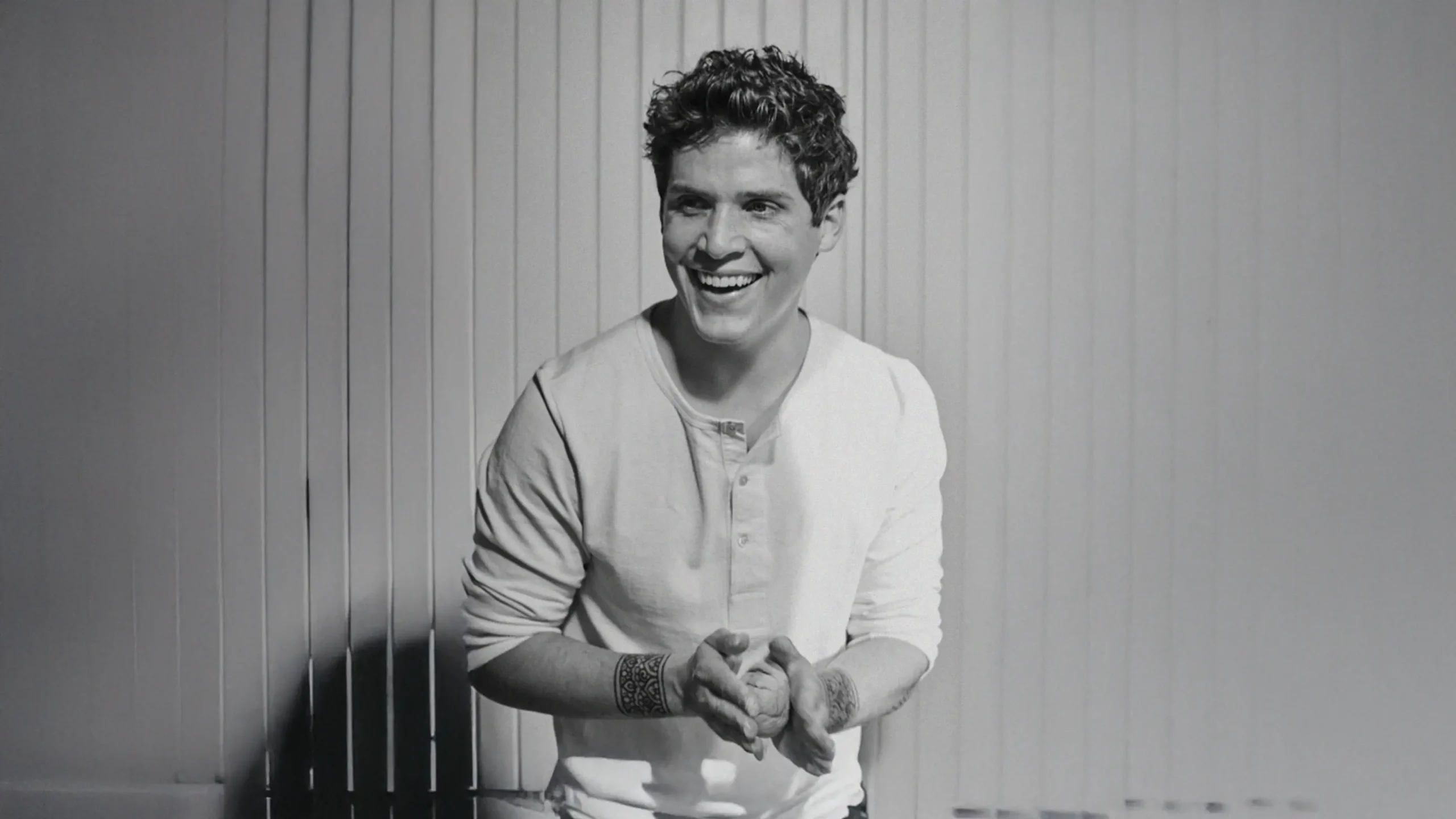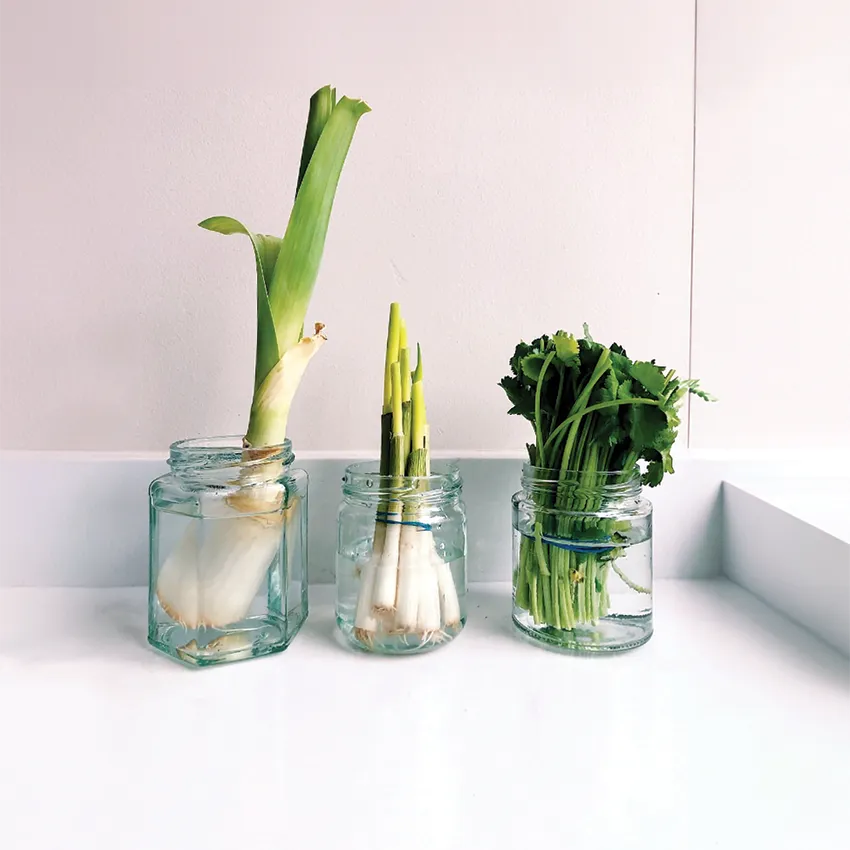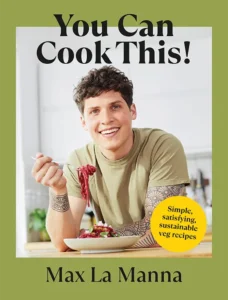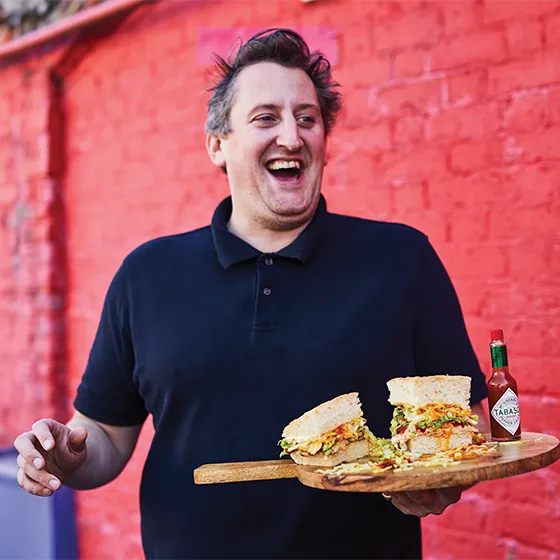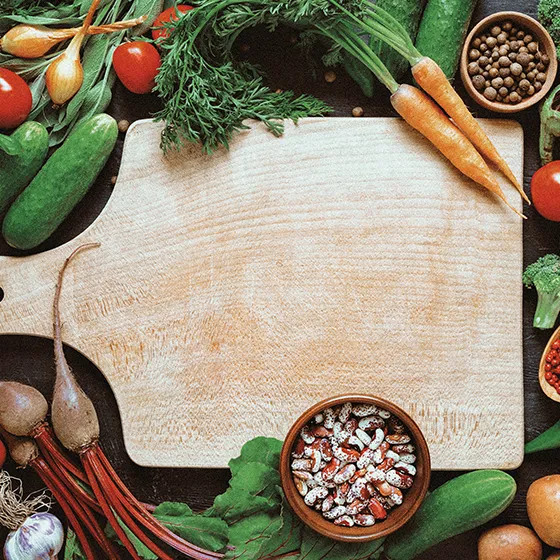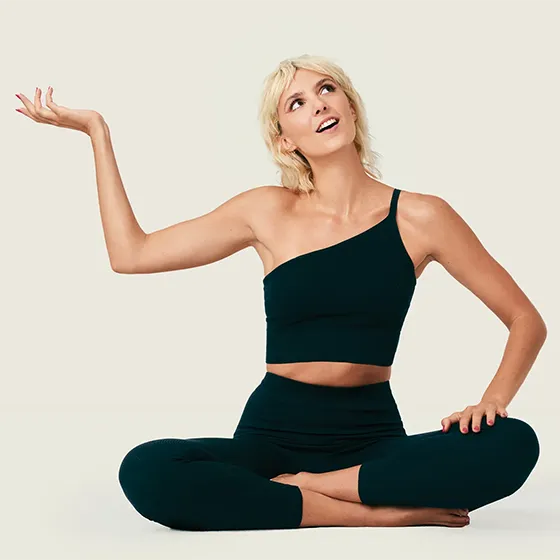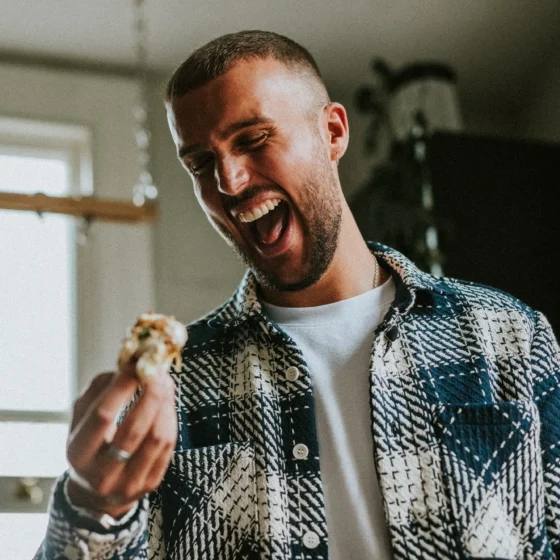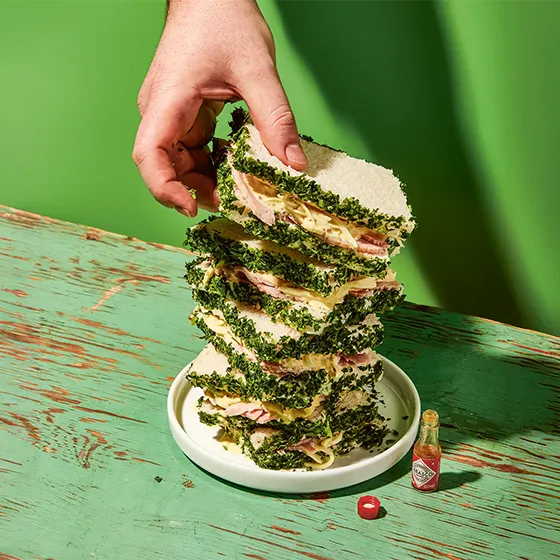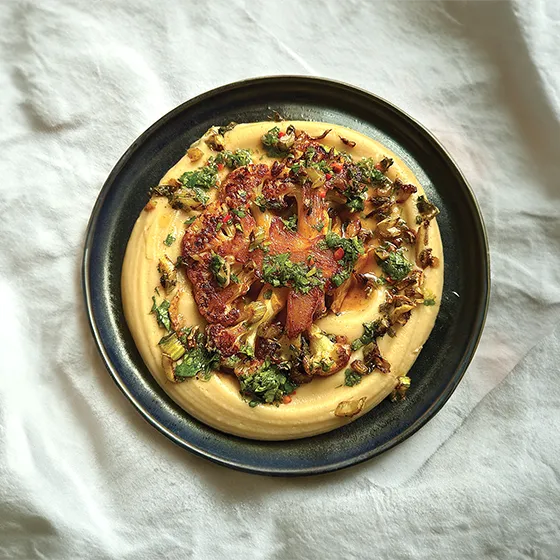His MO is easy, satisfying, low-waste recipes, and the numbers don’t lie – he’s taught nigh-on one million followers how to turn bin-bound veg into grid-worthy stir-fries. Plant-based chef and social media sensation Max La Manna (left) shares the highlights of his journey from pizza doughboy to sustainability superhero, gives us his top tips on reducing food waste, and explains why – when it comes to zero-waste targets – we should all give ourselves a break.
Has food always been an important touchstone in your life?
Yes. I love feeding people, I love cooking food, I love eating food – I just love being around food. I think food is a language all on its own – it’s an incredible vehicle to bring people together and transcend diff erences. When I travel, food is the inspiration that brings me to new places. I’m always learning, trying new dishes and experiencing new cuisine from people all around the world, and I think that’s a beautiful thing. When I play around with a new dish, or something that reminds me of a dish from my childhood, it brings me a lot of joy.
Is there a food that takes you back to your childhood?
For me, it’s my mother’s tomato sauce. I woke up every Saturday to the smell of sautéed onions and garlic, and that is a memory that will never leave my senses. Any time I’m sautéing onions and garlic, I’m transported back to that moment.
When did you start cooking?
When I was 15 or 16. I was a doughboy in a pizza restaurant and that was very tough. If you’re making dough, the recipe needs to be precise – there’s no, ‘oh, I’ll add a bit more of this’. So it helped me understand recipes and fl avours. Then it really started evolving when I was 20 and living on my own in New York City, pursuing careers in modelling and acting, and I had to cook for myself.
What made you decide to start sharing your recipes with the world?
I had a real epiphany about six or seven years ago. I didn’t know what I wanted to do. I was a bit confused and lost, so I decided to write a list of 10 things I could do every single day. It was a case of: this brings me joy and happiness so I’m going to share it with the world. I wanted my food to inspire, inform, educate. Jamie Oliver is an inspiration to me – I’d love to do what he does: rally a nation to better their cooking.
When did you start to worry about food waste and sustainability?
I’ve always had a green thumb. I spent a lot of time in the garden as a kid, I think mainly because my parents were always trying to get us to spend time in nature, so I’ve always cared for the planet. It’s a beautiful place and we have to respect it. When people say they’re throwing something away, there’s no such thing. It stays here. Having worked in restaurants for nearly two decades, I’ve seen my fair share of waste behind the scenes. But before I could start pointing the finger, I started looking at what I was throwing away at home, one ingredient at a time – and little by little, I reduced my food waste to nearly zero.
I’ve always had a GREEN THUMB. I spent a lot of time in the garden as a kid
What is the main reason for food waste?
Two things – overbuying and how we store our food. One third of the food that we bring into our homes is wasted, and we don’t know how to store our food properly. Four million potatoes, 20 million slices of bread, over a million bags of leafy greens, over a million bananas and hundreds of thousands of glasses of milk are thrown away or poured down the drain every single day. So it is an issue. The average household throws away £800 of edible, untouched food every year. Food that we throw away is money that we throw away.
Should we all be aiming for zero waste?
I don’t think the onus should be on us to reduce everything in our lives. If it brings you joy to live that way then do it, within reason. I think we can all make small changes that lead to bigger impacts. I think the onus should be placed on corporations and government. It’s not on us, it’s on the many businesses that produce 75% of the greenhouse gases around the world and push out greenwashing messages to make us feel it’s on us.
Was it environmental concerns that prompted you to go vegan?
Actually, it was for health reasons. I first went vegan in 2012. It was very challenging back then – I actually went vegan twice. For me, I want to live a healthy, long and happy life, so eating a balanced, wholefood, plant-based diet was about that. There’s a long history of heart problems on my father’s side of the family so I’m taking care of myself while I’m young to put me in balance for the years to come.
When people say they’re throwing something away, there’s no such thing… IT STAYS HERE
Have you noticed any changes since switching your diet?
Yes, I know that certain foods improve my mood and my energy levels. I still think enjoyment is important, but we all want to be focused and successful in what we do, and I think the right foods can get us to where we want to be.
What do you do in your spare time?
I do a lot of hiking and walking. I spend a lot of time doing bodyweight workouts, TRX, stationary bike, spinning classes. I do a lot of yoga, stretching, Pilates. I also meditate – that is part of my fitness, spiritual, emotional and mental routine as well. Otherwise, if I’m off my phone I’ve probably got my face in a book. At the moment I’m reading three books. I like everything from non-fiction to autobiographies to sports documentaries. I wasn’t a good reader as a child – I had a learning disability and speech impediment, so reading is something I do to improve my vocabulary and my confidence with public speaking. I try to read out loud.
Any guilty pleasures?
I don’t know if I have any guilty pleasures. I like chick lit because it’s easy for me to read, and I love a rom-com. Having spent years acting, reading scripts and watching plays on stage, I really appreciate good acting, so I spend a lot of time sitting on the couch watching films and television series. I like to dance, too.
Are you ever tempted to eat fast food?
Oh yeah, all the time. Fast food has a bad rep but it’s readily available, it’s quick, it’s inexpensive. But being a chef, I’m often disappointed when I go out and I’m like, I could have made this but better. And with food prices at the moment, I can probably save money by doing this, too.










